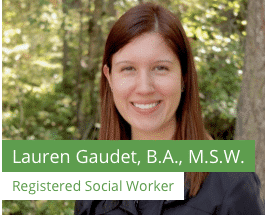
Know Your Symptoms: How Stress Affects Your Health
June 16, 2017
Positive Psychology
October 27, 2017Grieving is a unique journey for every individual who experiences it. There is not a “normal” amount of time to “get over” any loss, especially one as significant as a parent or child. Normal or typical grieving often has multiple symptoms (please note this is not an exclusive list):
Physiologically/in the body, many (or some) folks experience:
• Heart ache, general aches and pains, extreme fatigue, choked sensations, and sometimes even feeling like they are outside of their own bodies–kind of disconnected;
Psychologically/in the mind, many (or some) folks experience:
• Memory loss, or decreased ability to focus and concentrate, mood swings, or sometimes complete emotional numbness (not feeling anything), racing thoughts, decreased or absent motivation;
Emotionally, many (or some) folks experience:
• Sadness, anger, loneliness, at moments or time periods feeling “fine” (like everything feels normal/typical as they did prior to the loss); confusion (how could this happen?), acceptance, peace, relief, calm;
Spiritually, many (or some) folks experience:
• Questioning their religion/spirituality/God;
Many individuals experience heightened grief as they are reminded on holidays, anniversary, and other significant dates. Folks also are often reminded by the one who has died by scents (their favorite flower or perfume for example), sounds (music), objects (clothes, sentimental items), and so on. You cannot always anticipate when these reminders will happen, or how you will react/respond to them. There are individuals who have felt “fine” for several years, and one day something reminded them of their loved one who had passed and significant grief overcame them. This is completely okay and normal*.
Expressions of grief differ from individual to individual and this is absolutely okay. For some individuals, they find healing in talking about the person who has died, either with loved ones, a support group, a religious leader, and/or a counsellor. They may also be more comfortable with crying, expressing how they feel, etc. These individuals likely will not find increased support and healing if you force them to “deal with it alone” or ask them to “stop expressing your emotions (crying, anger, etc.)”. Other individuals find healing in processing the death alone or quietly. They may not appear to be feeling anything and/or have a lack of emotions, but very rarely is this case. These individuals likely will not find increased support and healing if you force them to “talk about it” with others and groups. Please note, sometimes talking to an important and trusted person can be very supportive for individuals who typically grieve alone and quietly.
It’s also important to consider cultural factors when folks are grieving. Depending on your culture, expressions and practices around grief may differ.
I personally don’t believe you “get over” a loss of a loved one. I do believe that typically over time, the pain becomes less acute when you are able to accept the loss, find personal coping skills, support, and healing that works for you. Eventually, there will be more “good” days.
I encourage you to not label the pain of loss as “bad”. Pain is your reminder that who you lost has meaning and significance in your life. Be gentle with yourself and your process.
*If you are finding that you are having difficulty in your daily life due to loss seek professional help from a mental health provider.
This blog post was written by OCCS’s Clinical Counsellor:
t: 250.718.9291






